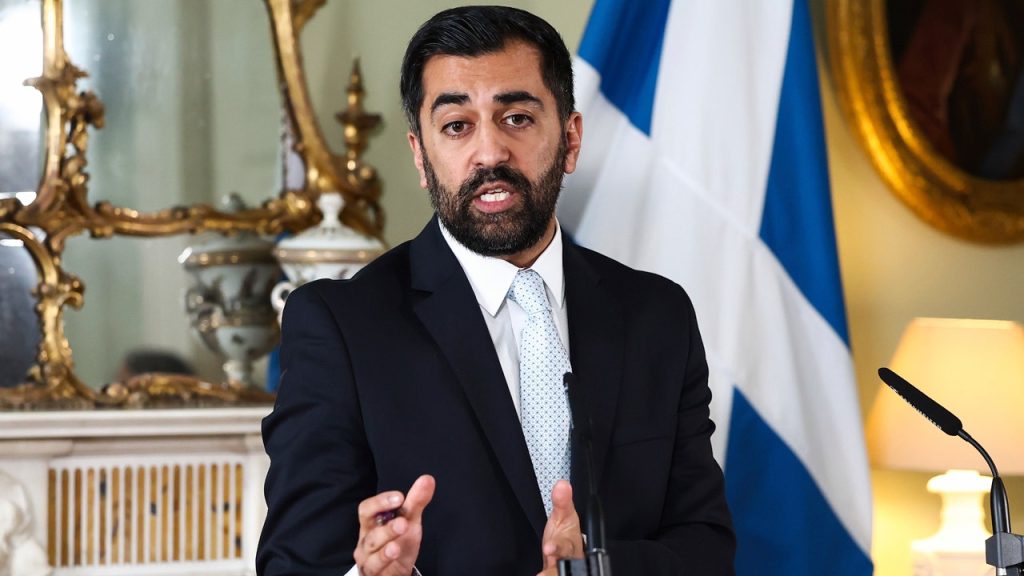Scotland’s First Minister, Humza Yousaf, recently terminated a power-sharing agreement with the Scottish Green Party over disagreements on climate change policies. This decision has led to the possibility of Yousaf losing his position and potentially facing an early election. The main opposition party, the Scottish Conservatives, has expressed plans to bring forward a vote of no confidence in Yousaf, which could result in his resignation if all opposition legislators vote against him. The Greens, as well as other opposition parties, have confirmed that they will be voting against Yousaf.
The termination of the power-sharing agreement came after Yousaf abandoned a key climate change target of reducing emissions by 75% by 2030, leading to unrest among members of the Greens. Yousaf defended his decision by stating that the coalition was no longer guaranteeing a stable arrangement in Parliament, prompting the need for a different arrangement moving forward. This decision could potentially jeopardize the SNP’s ability to pass legislation and the budget through Parliament, as they do not hold a majority.
To survive the vote of no confidence, Yousaf may need the support of a former SNP lawmaker, Ash Regan, who has indicated that she would consider backing him in exchange for certain conditions. If Regan supports Yousaf, both sides would have 64 votes, resulting in the chamber’s presiding officer casting a tie-breaking vote in favor of the status quo. The announcement by the Greens to vote against Yousaf marks a turbulent period in Scottish politics as tensions between the SNP and the Greens escalate.
The SNP has been facing challenges beyond the termination of the power-sharing agreement, including news that former leader Nicola Sturgeon’s husband has been charged with embezzlement in an investigation into the party’s finances. As opinion polls show increasing competition from the Labour Party in the upcoming UK general election, the SNP’s dominance in Scottish politics since 2007 is at risk. The outcome of the vote of no confidence and potential early election could have far-reaching implications for Scotland’s political landscape.
The relationship between the SNP and the Greens, both advocating for Scotland’s independence from the UK, has become strained in recent times, particularly following disagreements regarding climate change policies. Yousaf’s decision to end the power-sharing agreement has sparked criticism and uncertainty regarding the future stability of the government. With the potential loss of Yousaf’s leadership and the need for alternative arrangements in Parliament, Scotland faces a period of political upheaval and transformation.


